How to Prevent Panic Attacks at the Dentist
Suffering from Anxiety and Panic Attacks at the Thought of going to the Dentist?
Don’t be alarmed – you are not alone. Anxiety is one of the most common episodes seen by a Dentist, and often a result of childhood trauma or past experience.
Fortunately, Dentists’ have been trained in this area. Their techniques and technology have improved so much over the years, that modern Dentistry can be both stress and pain-free.
In this article, we discuss why the fear of the Dentist is so common, and self-help techniques to calm yourself down before attending any Dental appointments.
We also teach you how to choose the best Dentist for you, one who will help create a relaxed, comfortable environment to reduce any risk of you having a panic attack in that Dental chair.
So, let’s get right into it!
I Think I am going to have a Panic Attack at the Dentist, what do you recommend I do?
Please, first and foremost, discuss all of your concerns with your Dentist. There is no need to be nervous about doing so – trauma is seen frequently in Dentistry, as patients have built up memories of their childhood trauma.
Once your Dentist knows of your concerns, the first thing they will do is just ensure that you are safe, so that you can do no harm to yourself.
They will use certain techniques to make sure that you are in the present moment, and not living off your past fearful memories.
This involves familiarising you with the area that you are in and making sure that you know that nothing is going to harm you.
If you do not like the answers the Dentist gives you after discussing your concerns with them, simply find another Dentist, one of which you are happy with their answers.
Dentists have been trained to deal with panic attacks, so shop around and you will find a Dentist that makes you feel safe and comfortable, a Dentist who is committed to their profession and will guide you through the process with their support.
Why do I get Anxiety and Panic Attacks at the Dentist?
The most common reason that you will get anxiety at the Dentist is because of former bad experiences or past traumas when you were younger.
That is why these days the Dentist is so careful with your children, as they wish to ensure that cycle is not repeated in the Dental chair.
Unlike the entire generation of adults who have had terrible experiences themselves as children and are suffering from a form of Post-Traumatic Stress Disorder (PTSD) from the pain and harm they experienced at the Dentist many years ago, today’s Dentists’ do not want the past repeating itself on your children.
What are the Symptoms of Dental Anxiety?
If you suffer from Dental anxiety, you may notice the following symptoms when faced with attending a Dental appointment;
- Sweating
- Heart palpitations
- Low blood pressure
- Fainting
- Feeling stressed, crying, and experiencing panic attacks
- Missing dental appointments purposely
Why do people, in General, have such a Fear of the Dental Chair?
The main reason people fear going to the Dentist so much is that they have to give up all form of control, handing it over to someone else.
Other reasons include;
- Your mouth has a lot of nerve endings, so you can feel everything that is happening inside it.
- Once your mouth is open, this may trigger a feeling that you cannot breathe properly anymore, and you get a sense of suffocation.
- Many people are afraid of needles. This means they are scared of the local anaesthetic injection that may be needed to numb your tooth. If this is the case, simply tell your Dentist and they can apply an anaesthetic gel first, to numb your gum so that you do not feel the needle.
- If you have trust issues, you may view the mouth as being a personal space. Thus, allowing someone to access this area may feel like an invasion of your personal space.
What are Dentists’ Taught about Stress, Anxiety and Panic Attacks?
Your Dentist knows that your body has two different nervous systems, the sympathetic and the parasympathetic.
The sympathetic is where your fight, your flight, and your freeze response comes from. This is also where all your stress receptors are being fed.
All your traumatic memories that were formed back in the day were created whilst you were in a state of stress or fear, such as being in the Dental chair. Reliving those feelings and memories are going to induce a strong reaction, such as a panic attack.
To help reduce any risk of a panic attack, your Dentist should tell you in what steps your procedure will be performed, so you know what to expect.
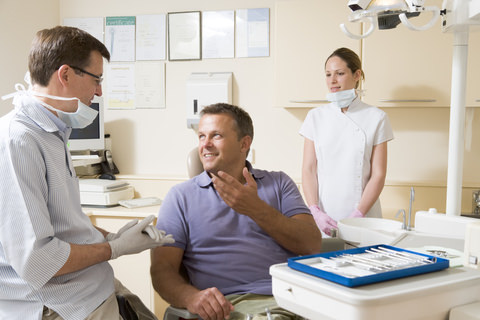
Speaking to your dentist about any concerns will help you relax about being in the dental chair
This will then give you back the control of your mind and body, and your “fight, flight, freeze” response lessons considerably, thus allowing for less feeling of anxiety and less chance of a panic attack.
You should feel as though you are working as a team with your Dentist, rather than feeling helpless. You should not feel overwhelmed, or as though the Dentist has full control.
If you feel helpless, your stress response is going to heighten considerably, thus leading to more chance of a panic attack.
What Else Can I Do to Help Calm Myself Down at the Dentist?
There are several simple exercises recommended by Dentists’ to help you keep calm and reduce the risk of anxiety or panic attacks. These include:
Talking
As discussed earlier, one of the most important things you can do is talk to your Dentist first about your feelings of anxiety and panic attacks.
They may help you understand why you feel the way you do, and knowing the cause behind your feelings just helps you understand the entire process in general, assisting in lessening any feelings of nervousness or fear.
Breathing
Start breathing through the nose before your procedure is performed. This means you will not get that feeling of suffocation once your mouth is opened as you can carry on breathing as necessary.
Swallowing
When your stress receptors are being fed, you need to swallow. You may think that you are unable to swallow, causing you to panic.
However, all you need to do is say to your Dentist, “please, give me time to swallow”, or if unable to do so, your Dentist may have told you prior to starting the procedure simply to raise your hand when needing to swallow.
Your Dentist will then allow you time to swallow, before proceeding with the treatment.
Mindfulness Techniques
Mindfulness is known as a practice of intentionally focusing all of your attention on the present moment, accepting it for what it is. This should allow you to reduce any feelings of stress or anxiety.
- Try mindful breathing – that is, as discussed, breathing slowly in and out through your nose.
- Try mindful observation – that is, choosing an object within your environment and relax whilst watching it for as long as your concentration allows.
- Try mindful listening – that is, close your eyes and put on your headphones and listen to a piece of music that you have never listened to before. Allow yourself to get lost in the sound, and explore every part of the track, and the sounds being made by the voice and each instrument. This too will help block out any noise made by the drill.
Distract your Mind
If emotions or memories of painful events do arise, do not allow yourself to get caught up in them.
Instead of thinking hard about something else is a good distraction. Perhaps try solving a puzzle in your mind or try to work out a plan for your following day.
Progressive Muscle Relation
Based on the theory that muscle relaxation blocks anxiety, this method will also help release any tension in your body.
Simply tense up any muscles and relax them consistently.
Conclusion
Are you suffering from Dental anxiety, a fear of the Dental chair, and worried that you may have a panic attack whilst visiting a Dentist?
Do not be concerned, you are not alone.
This is seen regularly in the Dental office and tends to relate back to trauma events experienced as a child. However, you are fortunate to know that it is easy to resolve.
The best thing that you can do is talk to your Dentist – please know that they are not going to judge you.
Once they understand your concerns, this will allow you to work together as a team and explore all the options available to you, putting your mind at ease.
Not only will your Dentist help you create a relaxed, comfortable and safe environment where you can get past any fears of being hurt, but you can also learn simple exercises to help keep yourself calm and reduce the risk of any anxiety or panic attacks.
So go ahead – let’s get past your dental fears and into that dental chair!
What is your biggest Dental fear?
By Anthony Cade
Created at June 04, 2019, Updated at January 25, 2025
Sorry, the comment form is closed at this time.


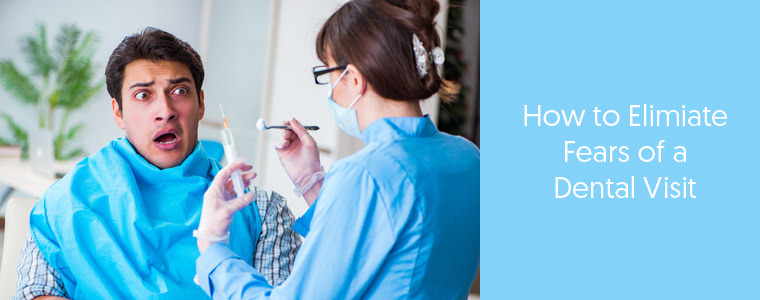
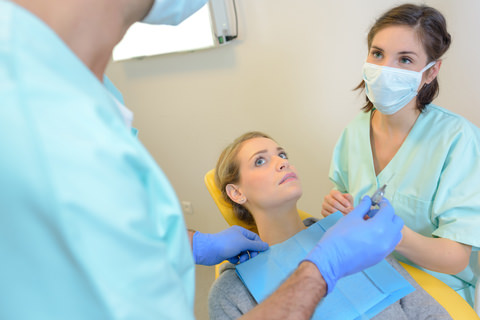
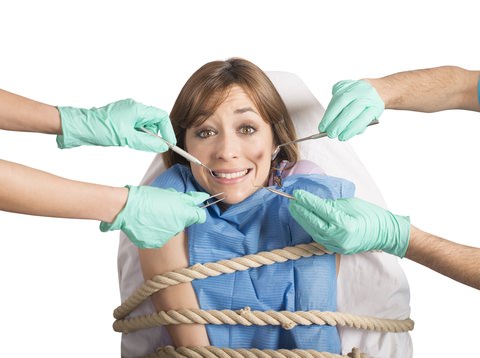
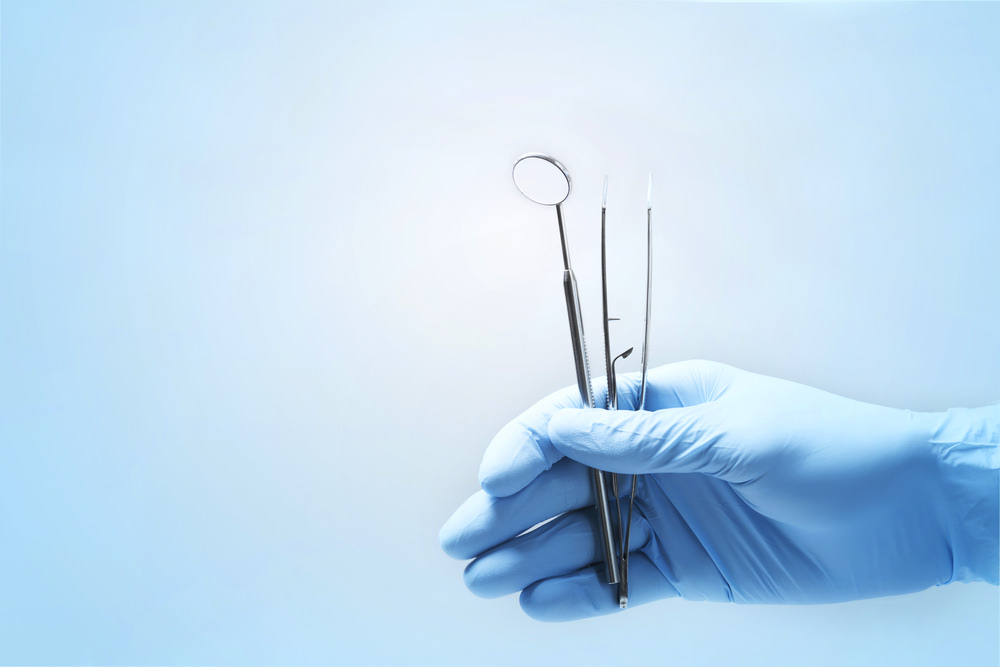

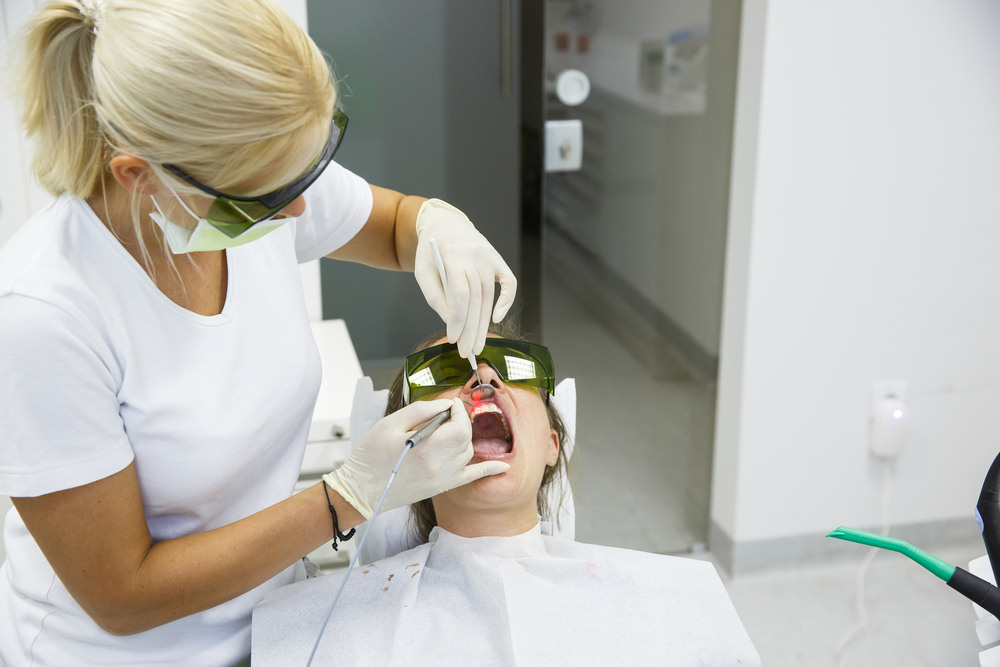
Massi R4 years ago
oh such a wonderful article. Thank you for writing this.
Dental Aware Team4 years ago
Thanks!